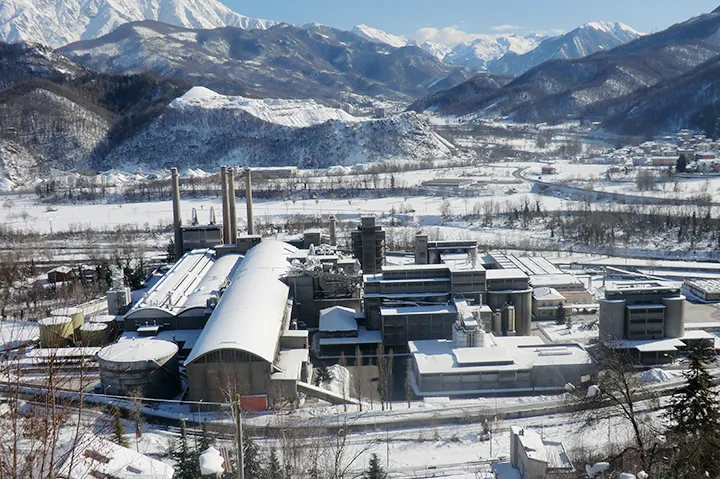trAILs

trAILs - Alpine Industrial Landscapes Transformation

The decline of traditional heavy and manufacturing industry is occurring nowadays even in peripheral and less urbanized regions, such as the Alps. Here, in the so-called “green heart of Europe”, this process is leaving behind impressive former productive landscapes of relevant size and complexity: Alpine Industrial Landscapes (AILs). The potential value of AILs in terms of sustainable transformation is strongly connected to Alpine-wide ecological, economical and social key challenges, such as the regeneration/improvement of blue and green infrastructures, the reactivation/upgrade of regional economies and the promotion of local identity and cultural heritage.
The project aims to generate significant knowledge about AILs and to develop and test sustainable transformation strategies applicabile and replicable in the whole Alpine space. In a multidisciplinary, transnational approach the project combines expertise in the fields of spatial and landscape planning, socio-economic sciences and ecologic restoration while directly cooperating with local communities in four pilot sites in Austria, Italy, France and Slovenia. The project's foreseen main outputs are: (a) AILs webGIS database covering the whole Alpine region, (b) assessment tool for evaluating AILs actual conditions, (c) test-design tool for evaluating AILs transformation potential and impacts, (d) AILs knowledge exchange, information and decision support platform, (e) AILs learning-module for training activities.
The project will support local and regional stakeholders in the complex process of sustainable AILs transformation, providing them with clear strategic planning tools for the future as well as with useful hands-on experiences.
Funding framework: EU-Interreg Alpine Space Programme, Priority 3 - Liveable Alpine Space, Specific objective 1 - Sustainably valorize Alpine Space cultural and natural heritage
Duration: 17/04/2018 - 16/04/2021
Budget: 2.187.400,30 Euro
Coordination: Technical University of Munich, Chair of Landscape Architecture and Industrial Landscape
Project partners:
Technical University of Munich, Germany
Vienna University of Technology, Austria
Polytechnic University of Milan, Italy
University of Verona, Italy
University of Ljubljana, Slovenia
LAMORO Development Agency, Italy
Architecture, Urbanism and Environment Council of Vaucluse, France
Business support centre Kranj, Slovenia
Registered association Styrian Iron Route, Austria
E-institute, Slovenia
Project observers: Regional Government of Lombardy, Italy; Piedmont Region, Italy; ETH Zurich, Switzerland; CIPRA International, Liechtenstein; Permanent Secretariat of the Alpine Convention (PSAC), Austria; Auvergne Rhone-Alps Region, France; Ministry of the Environment and Spatial Planning, Slovenia; “Erz und Eisen” Regional Development Company, Austria; Mountain Municipal Community of Seriana Valley, Italy; Esri Germany GmbH; Municipality of Leoben, Austria; University of Graz, Austria; TICCIH Austria; Provence-Alpes-Cote d’Azur Region, France; Bavarian Ministry of the Interior, for Building and Transport, Germany; Regional Union of CAUE AURA, France
For further information:
Prof. Dr. Udo Weilacher
Marcello Modica
Website: http://www.alpine-space.eu/projects/trails/en/home
The project is co-financed by the European Union via Interreg Alpine Space
"trAILs" Learning Module
Within the trAILs project, a special interdisciplinary learning module will be developed and tested over the coming years.
With a focus on specific landscape-based problem solving methods, using multidisciplinary and multi-scalar planning strategies like co-creative test planning and test design, supported by GIS technology, this program will expose you to current trends in landscape transformation combining the expertise from spatial planning, socioeconomic sciences, restoration ecology, landscape architecture and urban design. You will have the chance to examine issues surrounding landscape ecology, urban planning, regional planning, water management strategies and cultural landscape development, while discussing the relationship between ecological, economical and social developments in the Alps.
In addition to learning about the transformation of Alpine brownfields, you will explore the social, cultural, political, and economic forces affecting the development of inneralpine landscapes, and consider flexible ways of responding to them. In doing so, you will discover how research by design, for example, can be harnessed as a meaningful tool to tackle both local and regional challenges, and ultimately serve as a means of delivering a better quality of life for the local inhabitants, adapted to new challenges in this region, caused for example by global climate change and demographic change.
For more information, please contact: Prof. Dr. Udo Weilacher
Download more information here